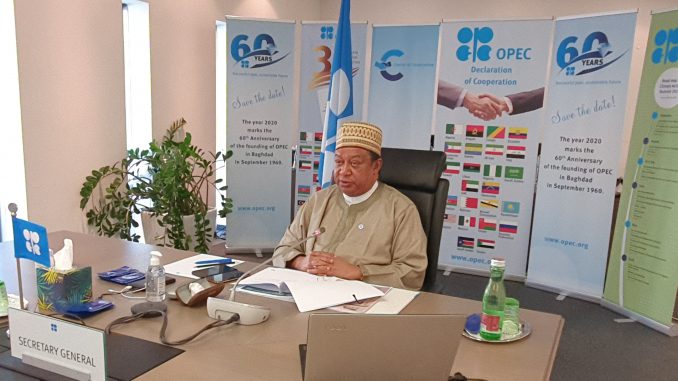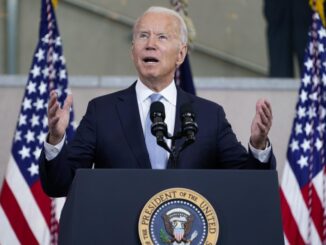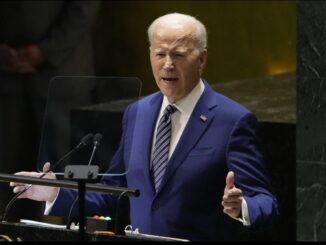

Mexican President Andres Manuel Lopez Obrador said Friday that he agreed with U.S. President Donald Trump that the United States will make up for what Mexico cannot add to the proposed oil-production cut. (Gregory Bull/The Associated Press)
Mexico says it has reached an agreement with the United States that will allow it to agree to a deal on oil production cuts with OPEC, Russia and other countries.
Mexican President Andres Manuel Lopez Obrador said Friday that during OPEC discussions, he agreed with U.S. President Donald Trump that the United States will make up for what Mexico cannot add to the proposed cut.
Lopez Obrador said that he spoke with Trump on Thursday, and both agreed that Mexico will cut its oil production by 100,000 barrels per day and that the U.S. will add a cut of 250,000 barrels per day to what it has already agreed.
Mexico refused to cut 400,000 barrels per day, as was originally requested.
“We held out until the end because it has cost us a lot of effort to increase petroleum production,” Lopez Obrador said.
Lopez Obrador has made increasing Mexico’s oil production and righting its heavily indebted state oil company, Pemex, a priority of his presidency. Production had been declining for years.
“We argued that it was difficult for us to cut production as much as they were asking,” he said.
He said Mexico was first asked to cut 400,000 barrels per day and then 350,000 barrels per day.
Before reaching the agreement with the U.S., Lopez Obrador said Trump read him a list of all the other countries that had agreed, noting that only Mexico refused. Lopez Obrador said he explained to Trump why and that’s when Trump proposed covering Mexico’s gap.




